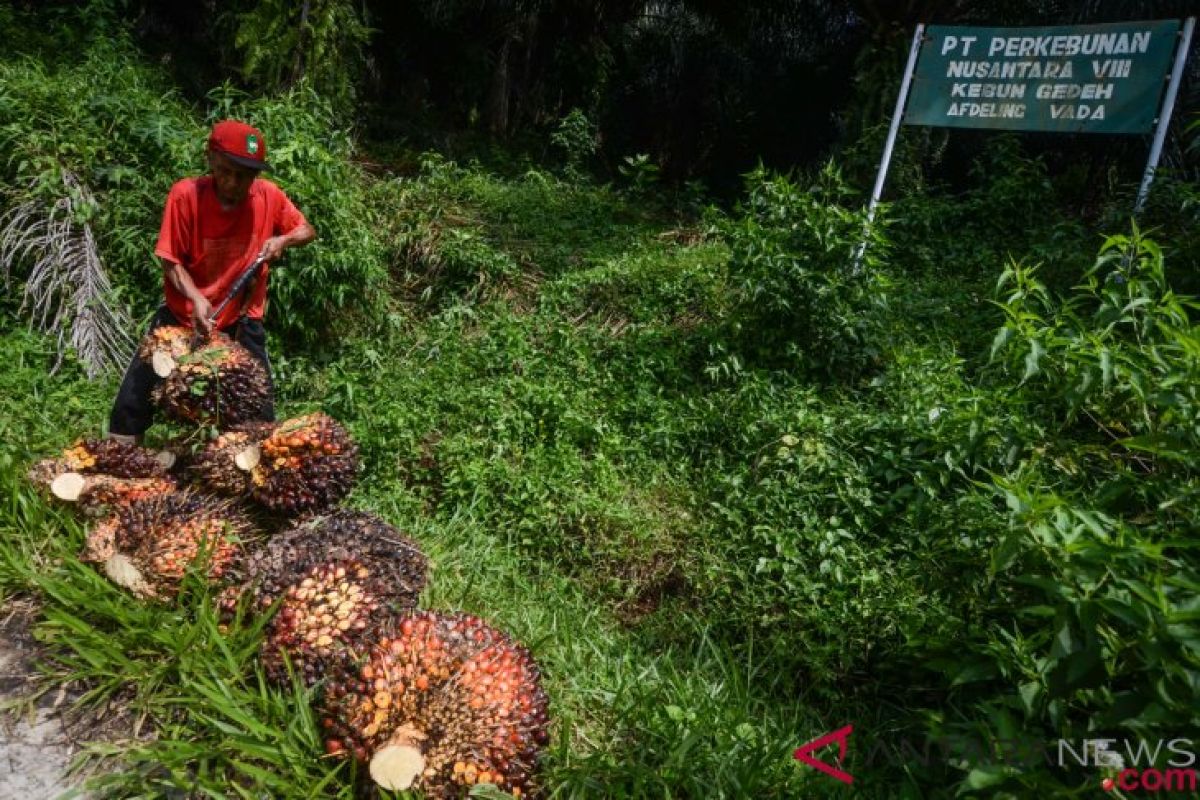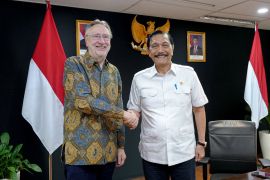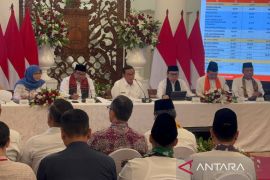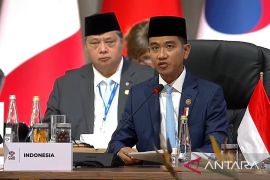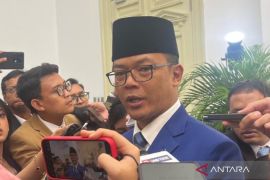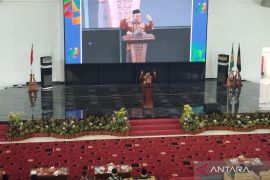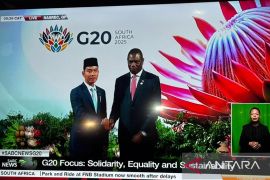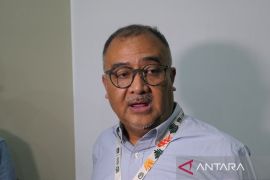As revealed in the embassy's press statement that ANTARA received in London on Saturday, the dialogue was held to gather different perspectives on the palm oil issue in Europe, and suggest a collaborative endeavor to promote the country's sustainable palm oil.
This event, which was held ahead of Coordinating Economic Minister Darmin Nasution's visit to Brussels, Belgium, from April 7 to April 8, 2019, was opened by member of the European Parliament Committee on Environment Alberto Cirio.
In addition to Cirio, the speakers at the dialogue were Imkje Tiesinga (European Palm Oil Alliance), Prof. Pietro Paganini (Competere.eu), Giacomo Bandini (For Free Choice Institute), Aude Mahy (Attorney-at-law, Loyens & Loeff Brussels), and Andi Sparringa (the Indonesian Embassy in Brussels).
Joined by a number of members and advisers of the European Parliament, the dialogue focused on facts, fiction, and misleading claims that have contributed to the proliferation of negative campaigns on the CPO in the EU member countries.
Cirio was quoted in the press statement as saying that the misleading claims over crude palm oil products had contributed to spreading misconceptions about the commodity among the EU community members.
However, according to the Indonesian Embassy's representative, Sparringa, the misleading claims on the CPO in Europe were not balanced with the positive developments in Indonesia with regard to promoting sustainable palm oil.
In fact, as equal partners, both Indonesia and EU share similar views over dealing with climate change. Therefore, the two parties need a partnership for sustainable palm oil based on the principles of the UN Sustainable Development Goals (SDGs).
Meanwhile, a noted scholar of the John Cabott University, Prof. Pietro Paganini, opined that many negative claims over palm oil were scientifically baseless and created confusion among consumers, especially when they were linked to saturated fats and deforestation.
He referred to claims that suggested products that did not contain palm oil were better for health as marketing tricks.
Tiesinga, who represented the European Palm Oil Alliance, argued that if the CPO products were boycotted in Europe, this move could further contribute to cases of deforestation because vegetable oil was likely to require more land.
The European Parliament's recent ban on the use of CPO for biofuels has become a hot issue in Indonesia.
Foreign Minister Retno L. P. Marsudi, during a meeting with her Dutch counterpart Stephanus Abraham Blok in the Hague, Friday, (Apr 5), reiterated the palm oil sector's role in helping Indonesia reduce its poverty rate.
During the bilateral meeting at the Foreign Ministry of the Netherlands, Marsudi was unequivocal in voicing Indonesia's disappointment over the European Commission's adoption of the delegated act, Political Counselor at the Indonesian Embassy in the Hague Yuliana Bahar stated.
Responding to the adopted delegated act categorizing that "palm oil has generally higher (ILUC) emissions than any other feedstock for biodiesel", Minister Marsudi drew focus to the need for a balanced discussion regarding palm oil issues, Bahar noted.
Related news: RI, Dutch foreign ministers hold palm oil-related discussions in Hague
Related news: Indonesia working hard to deal with EU's ban on palm oil: minister
Related news: Indonesia may refer EU's discriminatory policy on palm oil to WTO
Translator: Zeynita Gibbons, Rahmad Nasuti
Editor: Gusti Nur Cahya Aryani
Copyright © ANTARA 2019
